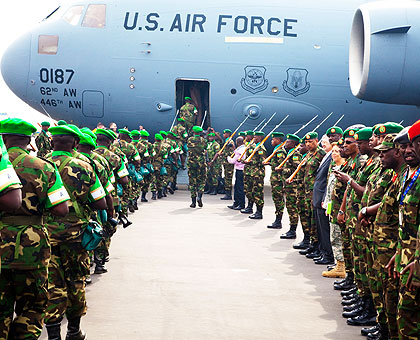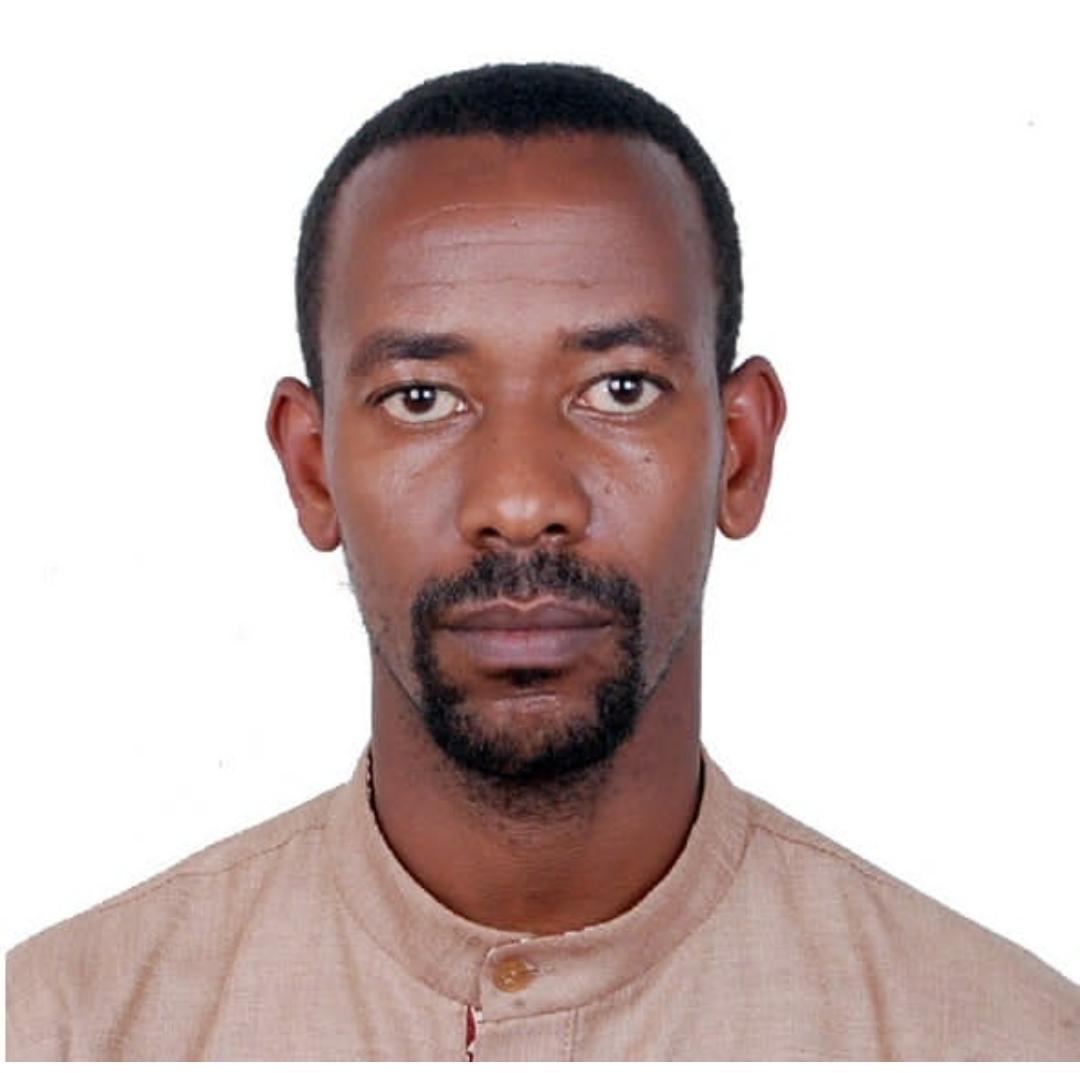At 9:45am yesterday, a US C-17 Globemaster plane with Rwandan peacekeepers and military equipment departed from Kigali International Airport and embarked on a three-hour journey to Bangui, the capital of the restive Central African Republic for an African Union peacekeeping mission.


At 9:45am yesterday, a US C-17 Globemaster plane with Rwandan peacekeepers and military equipment departed from Kigali International Airport and embarked on a three-hour journey to Bangui, the capital of the restive Central African Republic for an African Union peacekeeping mission.Scores of RDF servicemen and women and some of the logistics were airlifted in two planes to the conflict-torn country that has had three presidents in less than a year.The airlifting phase will last 20 days, involving 38 airlifts. The troops are part of an 850-strong Rwandan contingent that will bolster the International Support Mission to the CAR (Misca), which is seeking to restore calm in the restive country. The Mission, already with contingents from Burundi, Cameroon, Congo, Gabo, Chad and Equatorial Guinea, has a mandate to use force in the interest of protecting civilians.At the airport, the first batch of troops to head to CAR was seen off by the RDF Chief of Defence Staff, Gen. Patrick Nyamvumba, in the presence of the US Ambassador to Rwanda, Donald Koran, as well as other military and civilian officials.The Rwandan contingent, drawn from the RDF’s Rwambata-1 First Mechanised Infantry Battalion, will be deployed under the command of Lt. Col. Jean Paul Karangwa, and will work closely with the other African peacekeepers as well as a 1,600-strong French contingent that was deployed under a UN mandate."The Mission’s main goal is to protect civilians, help restore order, peace and security in the country, and eventually help establish and build institutions that will ensure a stable state,” Defence and Military spokesperson Joseph Nzabamwita said yesterday. PreparedThe Rwandan peacekeepers left with command vehicles, Armoured Personnel Carriers (APCs) and other motorised equipment that would help them scan the security environment in CAR. "We believe we will play our part in contributing to peace and security restoration in CAR as much as we have done in other international peacekeeping missions,” said Brig. Gen. Nzabamwita. This is the heaviest armed combat force Rwanda has deployed in any peacekeeping mission since 2004 when the country first sent troops on a peacekeeping mission–when it deployed to Sudanese region of Darfur.Rwanda’s deployment to CAR comes in the same year the country is marking the 20th anniversary of the 1994 Genocide against the Tutsi, a slaughter campaign that was largely made possible by the international community’s reluctance to intervene and end the killings despite early warnings.Twenty years after GenocideAs the killings unfolded, the UN infamously withdrew a significant number of its peacekeepers in the country at the time, much to the disappointment of defenceless Rwandan civilians and a helpless Canadian General who was commanding Unamir, the UN Mission in Rwanda. "It is important to note that we are intervening in CAR 20 years after the Genocide in Rwanda, a tragedy that reminds us of the international community’s failure to save lives in the wake of genocide. Rwandans have since committed themselves never to sit back and fold their hands when civilians anywhere are under existential threat yet we can do something to help prevent mass atrocities,” said Nzabamwita. The RDF deployment to CAR is under the UN Charter’s Chapter VII with a one-year mandate. Chapter VII authorises a peacekeeping force to use deadly force in protection of civilians, peacekeepers and peacekeeping facilities. But Nzabamwita says the RDF contingent that’s heading to CAR is not going there for war but peace. "We are not going to CAR to fight, we are going there to contribute towards restoration of peace and security… We believe our men and women will do their best to protect civilians and accomplish their duties accordingly,” he said.The conflict in CAR partly pits Seleka Muslim fighters against Christian militiamen with the highlight of the growing unrest being this month’s resignation of Michael Djotodia, the former Seleka rebel chief who swept to power in March last year, ousting Francois Bozize.Like Bozize, Djotodia has also headed into exile, and the new interim leader, Alexandre-Ferdinad Nguendet, has since ordered the army to adopt a "shoot-to-kill” approach to try and restore calm in the capital Bangui.


